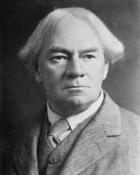
Jerome Klapka Jerome was an English writer of random life, master of comic narrative. He was born in the town of Walsall, near Wales, in a period of Victorian morals and full industrial effervescence. He was the youngest of four brothers: Paulina, Blandina and Milton, the last, who died at the age of six. His father was an important preacher and investor of the local mining industry, although in 1861 already under the industrial crisis in the region, the entire Jerome family was ruined and forced to emigrate to a nearby town, Stourbridge, and finally to the city, to the East End of London, where times of shortage and containment lived. A month after his twelve birthday, in 1971, the father died. His mother would do it just a few years later, when Jerome turned sixteen. At the age of fourteen, the family economic situation was already pressing, and Jerome dropped out of school and began to practice a string of various jobs he went through without penalty or glory: from a railroad employee to a schoolteacher, through journalism and theatrical interpretation.
Inspired by some verses of the American poet Henry Wadsworth Longfellow, he began to write his experiences on stage in a humorous way, published as deliveries in The Play magazine, and finally compiled in a single volume. Two years after the publication in 1886 of The Idle Thoughts of an Idle Fellow, a compilation of humorous essays, he married Georgina Elizabeth Henrietta, Ettie, only nine days after she got a divorce from her first husband, a Spanish soldier with whom he shared a nine-year-old daughter. His trip along the Thames as a honeymoon was the seed of his most acclaimed narrative: Three men in a boat. With the publication in 1889 of this comic novel, fame and success came for the writer Jerome. At the time of its appearance, the conservative Victorian society received three men in a boat with skepticism and was branded vulgar, trivial and inconsistent. Jerome, however, would close the mouth of the critics with an enviable public and sales success: today, the novel, and a humorous classic, has been reissued endlessly throughout its 120 years of existence and , in the first twenty years of its publication, it managed to beat the unaffordable figure for the time of more than one million copies sold worldwide. The writer framed Three men ... between the world of fiction and reality, between humorous narrative and travel: those three men were nothing more than him and his two companions of inseparable fatigue (Carl Hentschel and George Wingrave), dressed in fiction on a boat trip from Kingston to Oxford, a truffled adventure of anecdotes and humor as a travel diary, a plea for idle life and satire that managed to gain its rightful place. Such was its popularity that, at the end of its publication, the number of boats on the Thames increased from eight thousand to twelve thousand between 1888 and 1889.
Although he never managed to reach the levels of success he obtained thanks to Three Men ..., in the years following his publication he wrote a sequel, Three Men on the Bummel, among other novels, stories and essays. His dramaturgies also obtained the favor of the London public. Among them, the most celebrated was The Passing of the Third Floor Back (1908), on a recurring poster until well into the 1960s. He was also editor of the satirical magazines The Idle and To-Day, the last founded by him in 1893. World War I arrived in Europe when Jerome was 57 years old, and enlisted in the French army as an ambulance driver. He died in 1927, bequeathed an autobiography, My Life and Times, and left only one goal to fulfill: to become a member of the English parliament.




